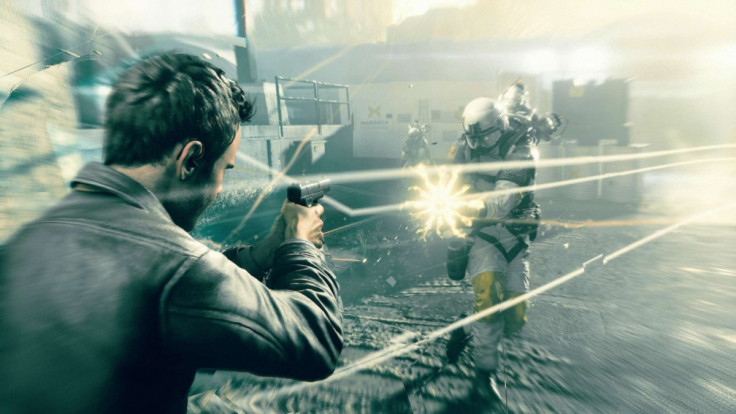Quantum Break: How time manipulation and choice undermines depictions of 'real life' in video games

From Max Payne to Prince of Persia, Life is Strange to Superhot, Braid to Forza Horizon, time manipulation mechanics are all over gaming. But it wasn't until I played Quantum Break that I felt like I understood why: there's something unique to games, and storytelling in games, that is complimented by, and reliant upon, giving the player an ability to alter time.
It comes down to fairness. Video games, by an inherent, and restrictive, nature, have to be fair. The player must be equipped with everything they need in order to progress. New challenges – new enemy types, new puzzle elements – have to be explained, so the player knows how to use them. If something happens in a video game that was not, in some way, telegraphed beforehand, it feels unfair and deliberately wrong-footing the player is often considered bad game design. This is why we have tutorials, to explain that if you cross the laser beam, it will activate an alarm, or levelling systems, whereby enemies become stronger in correspondence to the player.
But that approach to fairness only covers a certain amount of what happens in games: telegraphing mechanics is simple, but when games try to represent something as variable and chaotic as 'real life', how can they still be fair? Reality and human interaction, two things in which games have become increasingly interested, are not predictable, nor are they always fair. In life. You can try your hardest and make what you think are the right decisions, but bad things will still happen. How do you make something fair and predictable which by its nature is random?
Between missions in Quantum Break, you are presented with two choices. Whatever you decide, the game tells you, will affect the rest of the narrative – make the wrong choice, and who knows what could happen? Fortunately for players however, the character making these decisions - Paul Serene - has an ability to see into the future. When you hover over each possible choice, you can see exactly what will happen if you select it.

There's a similar dynamic in Life is Strange – you don't know what will happen when you make a decision, but if you don't like the outcome, you can use Max's time-rewinding superpower to go back and undo it. This is a 'cake and eat it' solution to the conflict between fair-game mechanics and narrative fidelity: bad, unfair and random things can still happen, but the player is notified of them. In essence, the player opts for bad things to happen. In both games there are still unruly plot twists, but in many instances, time manipulation mechanics eliminate any possible unfairness.
Rarely will something that a player decides backfire on them – the same way as being told in Metal Gear Solid that if you get seen by guards they will attack you, Quantum Break and Life is Strange tell you, explicitly, that if you perform X, Y will occur. Aesthetically, you're constructing narrative, even making moral decisions, but at their core, these are still mechanical actions, with selected inputs and predictable outputs.
It's a cop out. A video game that really wants to recreate our actual reality - even if its the setting of a more fantastical story - would refuse to signpost decisions or outcomes. The game wouldn't be fair. The player would feel hard done by. But over clean, concrete, fair play, this would be interesting – if games want to call themselves storytellers, they need to dispose of their inherent fairness.
Time manipulation is in service to the player. It's to make them feel safe, coddled, pandered to. And that's one of the ugliest impulses in gaming: game-makers' sycophantic, nervous desire to keep their audience happy. At the centre, this limits sincerity in video games, and the kinds of stories which they can effectively and honestly tell.
If games insist on always giving players an advantage, or the benefit of the doubt, as they did when they were purely mechanical, they can never sincerely claim to be representative of real life. It's a slightly teenage sentiment, perhaps, my insistence that life will keep undermining you, but it's certainly true that real choice, real decision-making, is characterised by not knowing what will happen – Life is Strange and Quantum Break boast about the weight of your choices and, by implication, the choices one makes in reality, but then package those choices as base, repairable, mechanical actions.
With pop-ups, like in The Walking Dead ("Kenny will remember that"), time manipulation is a graceful way of telegraphing and allowing the player to deliberate upon, with absolute knowledge, their choices. But it's merely a trick. There are instances, perhaps, in these games where your decisions are made for you or are implacable, but the central dynamic of making choices is impure – in the spirit of traditional (read: archaic) game design, you are aware what will happen before you choose. Especially when it comes to our biggest decisions, this is not the experience of real life.
For all the latest video game news follow us on Twitter @IBTGamesUK.
© Copyright IBTimes 2025. All rights reserved.



















